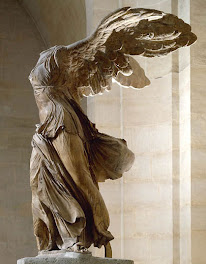 MINA DE WOLFRAMIO ABANDONADA - ABANDONED TUNGSTEN MINE
MINA DE WOLFRAMIO ABANDONADA - ABANDONED TUNGSTEN MINE"La mina, en realidad no funcionaba todavía, pero como el wólfram era indispensable para los contendientes de la guerra mundial y, por consiguiente, tan solicitado, la compañía bilbaína había decidido que, mientras las instalaciones no estuviesen terminadas, se comenzara a obtener el mineral lavando los terrenos de anteriores explotaciones. El wólfram había alcanzado unas cotizaciones tan altas, que compensaba pasar por los lavadores las tierras que anteriores explotaciones dejaran años atrás por estériles.
Lo que más había retrasado la plena puesta en marcha del negocio fue la instalación eléctrica. El dueño de un molino harinero disponía de suficiente fuerza para poder ceder parte a la mina, pero se produjeron violentas discusiones entre él y el ingeniero bilbaíno. Las terquedades y el amor propio acabaron por romper las negociaciones. Ninguno de los dos cedió para poder llegar a un acuerdo, y los dos se perjudicaron. El ingeniero, además de verse obligado a realizar trabajos muy costosos y lentos, tuvo que instalar un transformador, y el harinero se vio privado de obtener unos buenos beneficios vendiendo la fuerza eléctrica que le sobraba.
Cuando llegó Miguel a Candera, todavía no funcionaba el transformador y se seguían lavando únicamente los terrenos.
Tan grande llegó a ser la fiebre del wólfram en aquella época, que no era raro ver en algunos lugares pedregosos a campesinos--hombres y mujeres--, machacando trozos de roca con un martillo".
-----------------------------------------------------------------------------------------------------------------
THE BEGINNINGS OF THE MINE
The mine, as such wasn't working yet, but since tungsten/wolfram was very much needed by the world war participants and so coveted, the Bilbao company decided that while the equipment was not finished, they would start getting the mineral by washing the soil of previous mining exploitations. Wolfram had reached such a high market price that it was worthwhile laundering the land that previous exploitations had declared sterile.
What really had prevented the mine from starting, was the electrical installation. The owner of a flour mill had enough extra electrical power to provide the excess to the mine. However, violent discussions took place between the mining engineer from Bilbao and the mill owner. Neither of them wanted to come to an agreement. Due to their stubborness and pride, they didn't reach a compromise which, in the long run, both lost. The engineer for having to undertake costly and slow works installing a generator; the flour miller from obtaining a huge profit, not having sold his surplus electrical power.
When Miguel arrived in Candera, the generator was still not working and they were still laundering the grounds.
So huge became the wolfram fever at the time, that it was not rare to see peasant men and women, in stony sites, hammering pieces of rock.



.jpg)












































